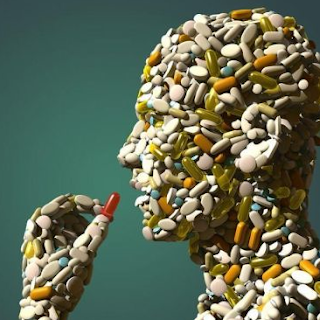 |
| zmescience.com |
Addiction is typically not viewed as a disease amongst many, but rather, is associated with a personal choice that may lead to a risky lifestyle. Using drugs is usually a person’s choice, but continued used can lead to brain changes. According to the National Institute on Drug Abuse, “Addiction is a chronic disease characterized by drug seeking and use that is compulsive, or difficult to control, despite harmful consequences.” Like other chronic conditions like Diabetes, Heart Disease, Sickle Cell Disease and etc., addiction is defined as a chronic health condition because it is caused by a combination of behavioral, environmental, genetic and biologic factors (National Institute of Drug Abuse).
Addiction involves changes in how the brain functions when the body craves pleasure chemicals like Dopamine. Most addictive substances cause an elevated level of these chemicals to be released when exposed to a pleasurable stimulus. Ultimately, continued exposure to a substance will alter the brain’s nervous system that controls reward, memory and motivation. Overtime, people may neglect their own health and well-being and loose interest in daily life activities, craving the substance to feel in balance.
Once the brain’s nervous system is altered, there will be a loss of control of one’s behavior resulting in physical signs of addiction such as shaking, rebound pain, irritability, nausea and vomiting. Other experts argue that people with mild substance abuse have the potential to willingly quit such use and recover without treatment. However, people with more severe addiction can require intense treatment and lifelong support from family and friends. Ultimately, a person suffering with addiction is responsible for seeking treatment and maintaining recovery. Addiction may not be a choice, but a chemical imbalance resulting in how the brain’s nervous system and other body systems function. But there is hope….Recovery from addiction is best achieved through a combination of self-management, mutual support, and professional care provided by trained and certified professionals. For more information go to, www.drugabuse.gov. Choose Wisely.
Paris Davis, BA
TOVA Community Health
Sickle Cell Specialty Center
www.tovacommunityhealth.org
(302) 655-6187 ext. 500






